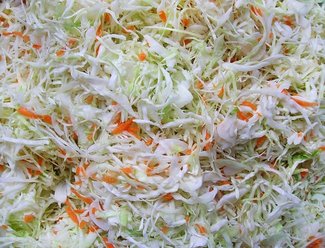 Summer is upon us and the rainy weather seems long gone! Or at least dormant. With more good weather many of us will be subtly tempted to increase our training intensities and want to stay out for that extra mileage. Though it is a good idea to increase our strength and endurance, doing so in a thoughtless manner often leads to injuries that can set our training back a month or more. Proximal hamstring tears, achilles tendinosis, calf lesions, plantar fasciosis, stress fractures, low back pain and patellar femoral syndrome (PFS) are all common running injuries that are more likely to occur when training regiments are progressed too quickly or when tissue damage is happening too consistently for the body to have an opportunity to strengthen the stressed tissues. Irintchev studied muscle damage in mice and concluded that “acute muscle injury occurring upon onset of voluntary running is a usual event in the adaption of muscles to altered use”. Additionally, muscle damage appears to have to occur in order to progress strength levels. We know that muscle is very plastic and thoroughly regenerative. It is one of our body’s most repairable tissues. The problems arise when the quantity and frequency of healthy injury begins to exceed the body’s ability to repair it. So how do we balance the natural damage we do to our body, with our body's ability to handle it while progressing a running program? One long-time guideline has been the 10% rule. Meaning we don’t progress our running distance greater than 10% in one week. The main problem with this rule is its’ over-simplification, but that is also one of its’ main strengths. This rule gives you a basic guideline and doesn’t require a great deal of analysis and oversight to ensure that your response to the increased workload isn’t approaching an unhealthy level. You can pad the 10% rule for a greater probability of success by monitoring your response to exercise. Muscle pain tends to be healthy, but pain at your tendons, especially where they interface with their bony attachments tends to indicate overuse. Additionally, pain in the bones of your feet or around the joints of your hips and knees also can show excessive inflammatory responses that may precede more serious injury. Recovery is essential. Inflammatory processes typically peak after 48 hours suggesting that taking an extra day of recovery if you start to suspect early injury may be very helpful for extending injury-free long-term training. Though consistency is important for form and coordination, changing the stresses on your body can help you train harder and longer. Consider alternating your running shoes between two similar styles or brands to change the distribution of forces through your lower extremities. Work in progression style runs where your pace increases at different points from beginning to end of your run. Or work in other forms of aerobic and resistive exercise. As you increase your runs this year do it safely and with good awareness of your strategies and physical responses to raise the odds of success. By Brian Kitzerow, DPT, OCS, CMPT Lee A, Anderson J, Joya J, Head S, Pather N, Kee A, Gunning P, Hardeman E. Aged skeletal muscle retains the ability to fully regenerate functional architecture. BioArchitecture. 2013;3(2):25-37 Irintchev A, Wernig A. Muscle damage and repair in voluntarily running mice: strain and muscle differences. Cell and Tissue Research. 1987;249:509-521 Buford T, MacNeil R, Clough L, Dirain M, Sandesara B, Pahor M, Manini T, Leeuwenburgh C. Active muscle regeneration following eccentric contraction-induced injury is similar between healthy young and older adults. Journal of Applied Physiology. 2014;116(11): 1481-1490.  The modern world is changing every single day. Because of this constant state of change, our bodies are frequently having to adjust. We have a food supply being degraded and depleted of nutritional content, which in turn, causes our bodies to become depleted. Our soil and water is contaminated with antibiotics and deadly fertilizers. All of which become part of the food chain we rely upon. Because of this, antibiotics are failing and superbugs like MRSA are on the rise. Lack of nutrition and the overuse of antibiotics are just a couple of the things wreaking havoc on our intestinal health. But there are ways to combat this and keep the gut healthy. Traditional Chinese Medicine (TCM) has been around for thousands of years and the approach of this medical system is to treat the patient holistically. TCM has been shown to be effective at treating a wide variety of ailments, including digestive issues. Part of this is because TCM focuses heavily on diet and nutrition. Qi is equated with energy and every organ, pathway and cell in the human body is composed of energy. For the body to function properly, Qi needs to be sufficient at all times. One of the best ways to maintain sufficient Qi is through our daily diet. Science is proving what TCM practitioners have known for centuries, our digestive health is vital for the cells of the body to function optimally. The gastrointestinal tract acts as a “second brain.” It has the ability to constantly transform us. The Human Microbiome Project is an ongoing study confirming microscopic bacterial colonies in our digestive tract have very important jobs to do. The bacterial colonies help keep us healthy both physically and mentally. But because of human intervention, these bacterial colonies in our guts are becoming sick, depleted and are dying. To rejuvenate these gastrointestinal bacterial colonies, many people are turning to TCM for help. Acupuncture and Chinese herbal formulas are great methods that focus on reviving our gastrointestinal Qi. Reviving this Qi in turn can improve digestion, decrease gas and bloating and improve bowel movements. The stomach and spleen are the two main pathways TCM practitioners focus on when treating somebody who exhibits digestive Qi deficiencies because these are the organs responsible for digestion in the TCM system. TCM nutritional advice is part of this program for optimizing digestive health. This is where fermented foods come into play. Fermented foods have been around for centuries as well. Fermentation is one of the oldest attempts to preserve food. But in today’s world, fermented foods, like sauerkraut, kimchi and yogurt are being utilized to help restore the healthy bacterial colonies found within the gastrointestinal tract. In fermentation, bacteria or yeast feed on natural sugars found in foods. This makes certain foods easier for the gut to digest and allows for the nutrients to be absorbed during digestion. People who do not ingest fermented foods can actually develop immune deficiencies which can lead to serious illness and disease. For instance, sauerkraut, which is fermented cabbage, actually has anti-carcinogenic components that can help prevent cancer. Yogurt can help prevent colorectal cancer, breast cancer and yeast infections. Kimchi has been shown to help improve symptoms of asthma and other allergic reactions, while also lowering LDL or “bad” cholesterol levels. Incorporating fermented foods into the daily diet and getting regular acupuncture treatments that help balance out the body’s Qi, can lead to a very healthy gastrointestinal tract. And when the gut is happy, the body is happy, the brain is happy and the mood is improved. Sound awesome? It is! Try increasing your fermented food intake and adding Acupuncture to the mix today and see how great it feels!  Irritable Bowel Syndrome is something I am intimately familiar with. In my teens I developed IBS from an eating disorder, and even once my bad dietary habits stopped I continued having IBS into my 20's - until I found Chinese Medicine. Treating IBS and helping patients determine if they have food sensitivities that are contributing is something very near and dear to my heart, therefore. I even wrote my Master's Degree research paper on it which you can read by clicking here! For those not interested in the pathological details however, here are some helpful tips and tricks that you can put into action today. I hope you will find this information informative and useful! My success with Acupuncture and Chinese Medicine to treat IBS felt miraculous, so if you have IBS or know someone who does I HIGHLY recommend you try (or encourage those you love to try) this treatment. Regardless read on and enjoy! Irritable Bowel Syndrome, otherwise known as “spastic colon,” is a common disorder that affects the colon and causes many disruptive symptoms. Many of these symptoms can be managed with a simple change in diet and lifestyle. Chinese herbal medicine and acupuncture may be able to help. IBS symptoms may include gas, bloating, alternating constipation and diarrhea, pain, mucus, an uncomfortably full feeling and abdominal cramping. Most of these symptoms develop over time, and there is no structural or anatomical change that can be detected as cause. Doctors are unsure of the origin, though stress and diet are said to be triggers of distressing symptoms. Women suffer from IBS more frequently than men. One of the most common diagnosis of IBS in Traditional Chinese Medicine is what is known as a “liver-spleen disharmony” due to stress. Normally, the liver is in charge of the free flow of energy (or vital force), blood and oxygen to the spleen and stomach, the organs who do their job of digesting food by transporting and transforming food and descending energy downward. When the liver energy becomes stagnant through emotions such as stress, frustration, anger, moodiness and tightness in the body (the liver is sensitive to these emotions), this encumbers proper digestion and what can result is acid, belching, nausea, abdominal distention and bloating. Diarrhea or constipation can occur or irregular bowel movements. Other common symptoms of stagnant liver energy are PMS, cramping with clots and irregular menses. Easing stress would be the most important aspect of the treatment plan to get to the root of the issue. Another common cause of IBS is food sensitivity. Eliminating trigger foods has been shown to help symptoms tremendously. Here are some things to consider eliminating: Too many cold, raw vegetables: Eating too many cold, raw vegetables dampens the digestive fire and leads to malabsorption. Cook vegetables instead and eat them warm. Cruciferous vegetables and legumes: These are healthy but can cause gas and bloating in sensitive individuals. Consider eating them cooked and/or decreasing or eliminating them from your diet depending on your sensitivity level. Dairy: Lactose intolerance can lead to digestive ailments. If you aren’t sure, try eliminating dairy such as milk, yogurt and cheese for AT LEAST 2 weeks before reintroducing them and seeing how you feel. Eating fast, while angry or hurried: When you eat or drink quickly, you might be inhaling too much air and eating too much. Eat slowly and mindfully. Other triggers: Sensitivities might include chocolate, carbonated drinks, artificial sweeteners, caffeine, greasy food or processed food. Hormonal changes could also be a factor in increased IBS symptoms as well. Start keeping a food journal that notes time, food eaten and symptoms for each day - see if you can draw any correlations after 2 weeks. How to know for sure? It is best not to self-diagnose symptoms, so see your medical provider to see if you have IBS and not something more serious. Your Chinese medical practitioner can help you by diagnosing the symptoms according to a more eastern perspective, administering acupuncture and perhaps prescribing an herbal formula, and adjusting your diet to eliminate triggers that are irritating for your particular constitution. Some remedies for IBS include acupuncture to improve flow in the abdomen and ease stress, herbs, increasing fiber (gradually, or it could worsen symptoms), massaging the abdomen (9x clockwise, 9x counter-clockwise), exercise to move things around such as tai qi or qigong, and probiotics to increase good bacteria in the stomach. Peppermint, magnesium, and chamomile can soothe and ease symptoms. If you want to know more or want to get started with treatment, feel free to book in anytime. It would be my pleasure to apply my knowledge and experience and help! Yours in Health, ~Rebecca  During the summer solstice your yang energy reaches its peak. It is important to harness the peak of this yang energy, because as summer shifts into fall yang energy will decline. This great abundance of yang energy will translate throughout your body because during this season you are active and growing. According to five element theory, during the summer the organ that receives extra energy is the heart. When the seasons change so do the organs we should focus on in the body. You should focus on the heart during summer. Feed the heart heart-nourishing foods and make sure to remain active so the heart receives positive energy. When summertime and the summer solstice arrives it is very important and integral to your body to remain active. An activity such as swimming can be very beneficial. Swimming allows you to move within the cool yin of water and this can assist in balancing the hot Qi that comes with the onset of summer. Make sure to keep your circulation moving to avoid the stagnation that can come from too much heat. This can leave you feeling increased aches and pains, decreased appetite and poor digestion and fatigued. Its ideal to eat heart healthy, stay health conscious and get plenty of exercise plus restorative time such as yoga and meditation. If you follow those suggestions and enjoy the sun within reason, you will thrive through this and any Summer Solstice. If you add a little Acupuncture to the mix as well, you're sure to have a nourishing summer season for your body which will help you to prepare for the upcoming fall and winter seasons. Gotta store up that sunshine inside to stay warm through those cooler months! If you haven't been in for a while, now is a GREAT time to come in for a tune up. Book in now to feel better tomorrow! |
AuthorsRebecca M H Kitzerow is a Licensed Acupuncturist practicing in La Center, Washington. With over a decade of experience she has won 10 Nattie consumer choice awards from Natural Awakenings Magazine since 2014. Archives
July 2024
Categories
All
|
Photos from Hey Paul Studios, BeGreen_Studio, Pawel Pacholec, 1950sUnlimited, toulupaliaqaz, Joelk75, OnTask, Robert Gourley, cnu_sports, Mitya Ku, wuestenigel (CC BY 2.0), FootMassagez, 401(K) 2013, Mariana Heinz, @EdwardTerry, fishhawk, liverpoolhls, torbakhopper, Boemski, dolomitibl, Driscolltheque, Dave n Laura, Vaping360, MVWorks, Life Mental Health, MVWorks, mikefats, Scot Nelson, jfl1066, wZa HK, ruurmo, Guadalupe Cervilla, Army Medicine, GViciano, torbakhopper, adrigu, Saulo Cruz, Ben Cumming, marniejoyce, kcxd, JasonCorey, kanenas.net, Live to Create Photography, gm.esthermax, Unique Hotels Group, Zenspa1, mysiana, Tobias Lindman, Leader Nancy Pelosi, Kristoffer Trolle, swanksalot, Bill Selak, Parker Knight, stimpsonjake, Gedankensprudler, SuperFantastic, tonynetone, marniejoyce, JeepersMedia, Illusive Photography, 'Ajnagraphy', Iban Torras, scotted400, gtall1, dvanzuijlekom, BPPrice, Skley, torbakhopper, Renato Ganoza, anka.albrecht, QUOI Media, Public Domain Photos, Instant Vantage, Victor Tongdee, Free Grunge Textures - www.freestock.ca, sportEX journals, Nadja Tatar, angela n., marniejoyce, MVWorks, Karolina Kabat, Thomas Fisher Rare Book Library, UofT, ginnerobot, tracilawson, haven't the slightest, My Photo Journeys, Pierre Willemin, Florena_Presse, SuperFantastic, colindunn, zzkt, TraumaAndDissociation, ER24 EMS (Pty) Ltd., shixart1985 (CC BY 2.0), marniejoyce, Tomás Fano, freestock.ca ♡ dare to share beauty, Archives New Zealand, Jaykhuang, airdrie.m, Go-tea 郭天, OnTask, wuestenigel, focusonmore.com, Disney | ABC Television Group, Andrew Gustar, Didriks, ConstructionDealMkting, charlywkarl, barnimages.com, Lel4nd, runwaypilates, michaelstephanfotografie, McLevn, TraumaAndDissociation, eLife - the journal, Lars Plougmann, wuestenigel, shixart1985, boviate, davis.steve32, kevin dooley, @the.photoguy (insta), frederic.gombert, Feathering the Nest, Victor Tondee, shixart1985, wuestenigel, Joe K Gage, kennethkonica
 RSS Feed
RSS Feed
